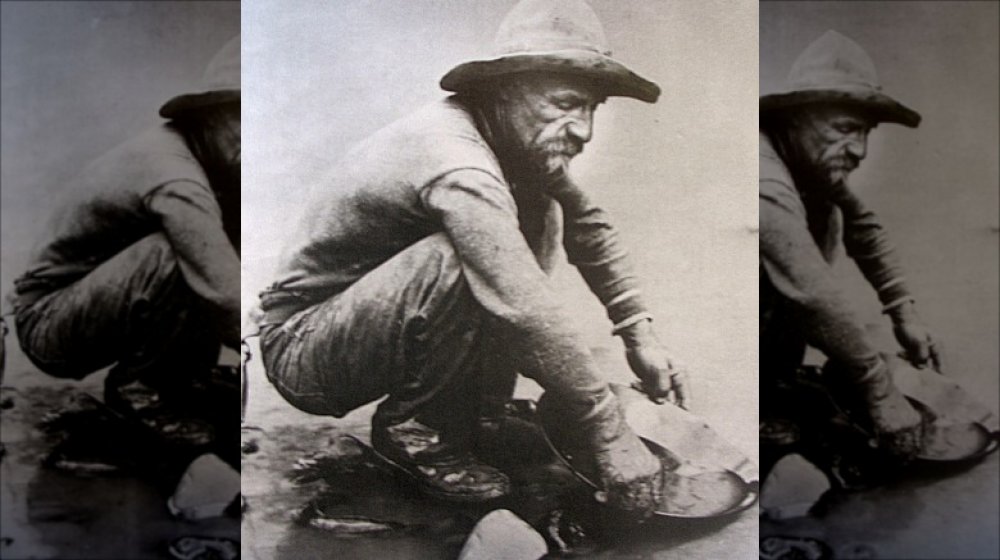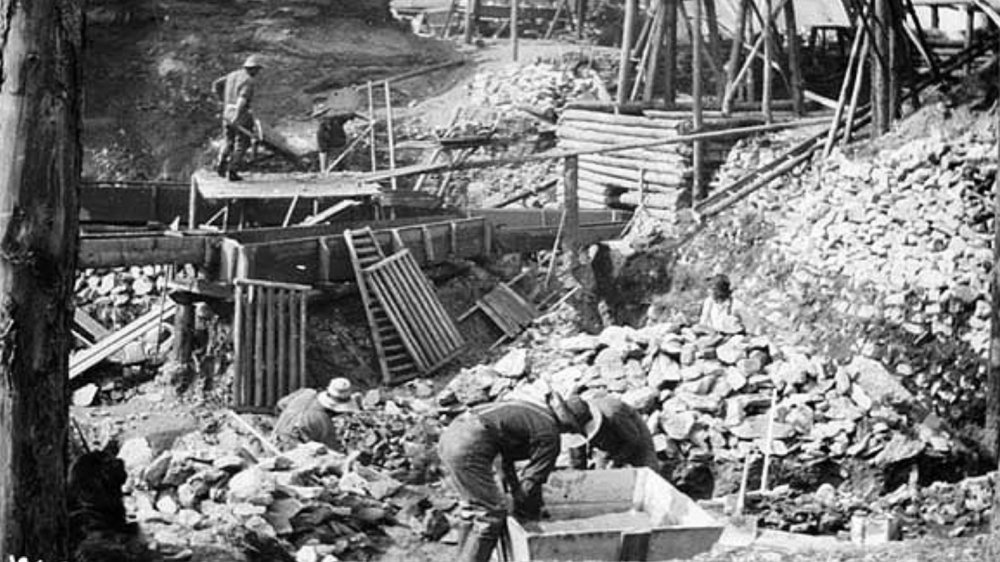What Life Was Like For Prospectors In The Wild West
The era recognized as the Wild West didn't officially begin until 1865, according to Vintage News. The period began with a literal bang. As History describes, 1865 saw the first Wild West showdown, in which gambler Davis Tutt bet on himself to beat "Wild Bill" Hickok and lost his life. But for prospectors, the West was plenty wild long before Hickok busted a cap in Tutt's butt.
As Eyewitness History recounts, the story started for the prospectors in 1848, at the site of a saw mill construction project near modern-day Sacramento, California. While building the mill, James Wilson Marshall spotted the precious metal that would turn countless Sméagols in the East into the Gollum-pocalypse known as the 1849 Gold Rush. San Francisco newspapers broke the story, but people didn't trust the media back then, either, and the reports were initially dismissed as fake news. Once a storekeeper produced a bottle of gold dust, the feverish rush that followed was so intense, it bankrupted two newspapers because of the number of people who went to try their luck. However, many of their aspirations would end up like Davis Tutt's butt — shot to hell.
A wild west goose chase
In May 1849, S. Shufelt joined 200 other people on a steamer from New York to California and lived in a cabin in Sacramento with six other dudes, per Eyewitness History. As he bleakly describes in a letter, "Many, very many, that come here meet with bad success & thousands will leave their bones here. Others will lose their health, contract diseases that they will carry to their graves with them." Miners often suffered scurvy due to nutrient-deprived diets. A malnourished Shufelt temporarily became "deranged" from illness. Outside the cabin, he was greeted by thievery, murder, and rampant gambling. Even young children placed $5 and $10 bets, the modern equivalent of roughly $115 to $225.
When the Wild West began in earnest, prospects were still grim for the prospectors. Montana State University points out that afte the Civil War, a string of economic depressions sent people rushing west out of desperation. They mined for gold, silver, copper zinc, and even asbestos. In the process, they drank unclean water, succumbed to mercury and lead poisoning, and inhaled dangerous dust. Others became casualties of explosions and electrocutions, slipped on rocks, and fell off ladders. NPR notes that those who ventured to the Yukon often died in shipwrecks, those who reached land were often too late to stake a claim. Though a lucky few prospectors found the goose that laid the golden egg, many instead found themselves on a wild goose chase.

